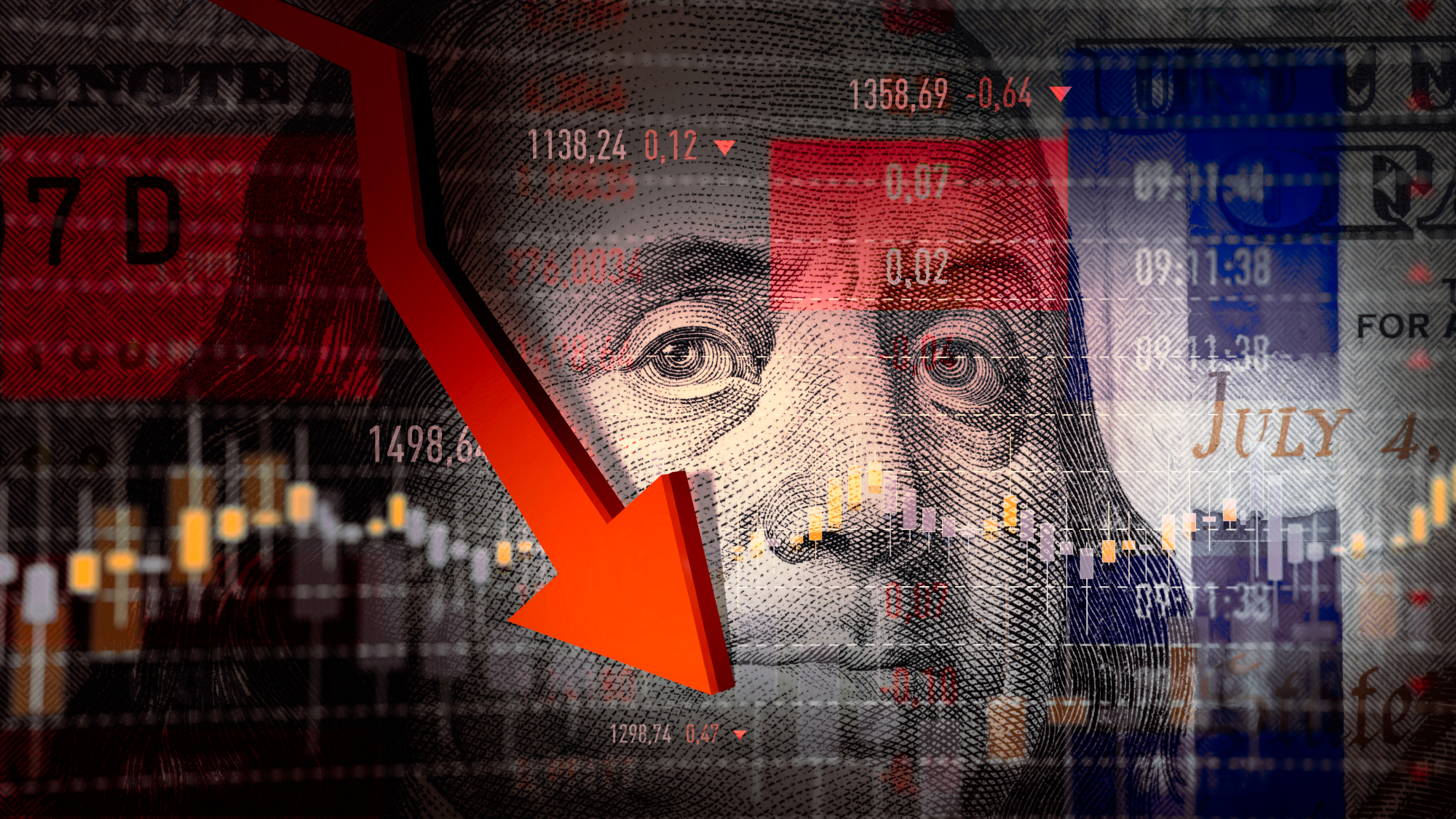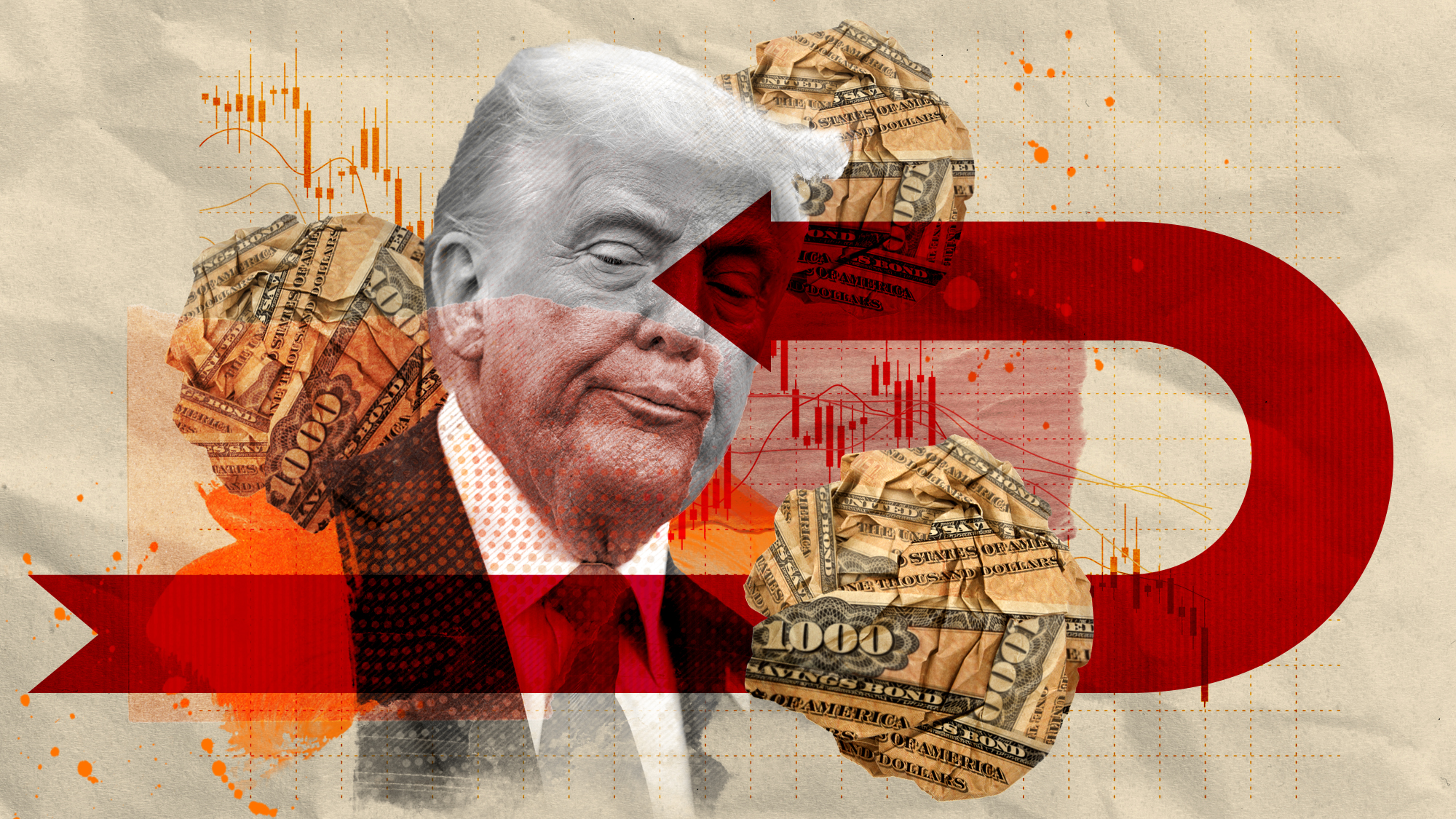The curse of great expectations
And more of the week's best financial insight

A free daily email with the biggest news stories of the day – and the best features from TheWeek.com
You are now subscribed
Your newsletter sign-up was successful
Here are three of the week's top pieces of financial insight, gathered from around the web:
A $100 piece of a $55 million painting
A 1963 portrait by British artist Francis Bacon is about to make its stock market debut, said Carol Ryan in The Wall Street Journal. Next month, "a company named Artex is launching a roughly $55 million initial public offering of Bacon's Three Studies for a Portrait of George Dyer," with shares of the artwork going for about $100 apiece. The "stock" will list on a specially created "art stock exchange" available to regular investors. Though "artworks valued below $1 million are risky, returns on 'blue-chip' art" from the post-1945 era gained 12.6% yearly between 1995 and 2022, compared with a 9% annual return for the S&P 500, according to Masterworks, an investment platform that began offering fractional art shares to investors in 2017.
The curse of great expectations
American investors have unrealistic expectations about their returns, said Terry Lane in Investopedia. The 2023 Natixis Investment Managers Survey of Individual Investors found recently that Americans expect "their investments can return 15.6% over the long term," more than twice "the 7% returns that financial advisers expect." Between 2012 and 2021, the S&P 500 returned 16.5% per year. Then 2022 happened, which 86% of respondents said was "a wake-up call" that the bull market run wasn't unstoppable. But the memory of that seems to be fading. Some 59% of investors say they are comfortable accepting more risk — even though 44% admit they are already taking on more risk than they should.
The Week
Escape your echo chamber. Get the facts behind the news, plus analysis from multiple perspectives.

Sign up for The Week's Free Newsletters
From our morning news briefing to a weekly Good News Newsletter, get the best of The Week delivered directly to your inbox.
From our morning news briefing to a weekly Good News Newsletter, get the best of The Week delivered directly to your inbox.
Gloom for commercial real estate
It could take 15 years before U.S. office buildings regain their pre-pandemic peak values, said John Gittelsohn in Bloomberg. London-based research firm Capital Economics said last week that U.S. office values "are expected to plunge 35% from the peak by the end of 2025." The firm said the collapse mirrors what happened to shopping malls as e-commerce grew in the late 1990s and early 2000s. Many large investors, such as Blackstone, are simply walking away from their holdings, and handing them to lenders. "About $18 billion of office buildings were considered distressed at the end of March," according to a recent report by MSCI Real Assets. Despite efforts by companies to bring workers back, office usage remains "only about half what it was before the pandemic."
This article was first published in the latest issue of The Week magazine. If you want to read more like it, you can try six risk-free issues of the magazine here.
A free daily email with the biggest news stories of the day – and the best features from TheWeek.com
-
 Political cartoons for February 15
Political cartoons for February 15Cartoons Sunday's political cartoons include political ventriloquism, Europe in the middle, and more
-
 The broken water companies failing England and Wales
The broken water companies failing England and WalesExplainer With rising bills, deteriorating river health and a lack of investment, regulators face an uphill battle to stabilise the industry
-
 A thrilling foodie city in northern Japan
A thrilling foodie city in northern JapanThe Week Recommends The food scene here is ‘unspoilt’ and ‘fun’
-
 Did markets’ ‘Sell America’ trade force Trump to TACO on Greenland?
Did markets’ ‘Sell America’ trade force Trump to TACO on Greenland?Today’s Big Question Investors navigate a suddenly uncertain global economy
-
 Texas is trying to become America’s next financial hub
Texas is trying to become America’s next financial hubIn the Spotlight The Lone Star State could soon have three major stock exchanges
-
 What a rising gold price says about the global economy
What a rising gold price says about the global economyThe Explainer Institutions, central banks and speculators drive record surge amid ‘loss of trust’ in bond markets and US dollar
-
 Is a financial market crash around the corner?
Is a financial market crash around the corner?Talking Points Observers see echoes of 1929
-
 The AI bubble and a potential stock market crash
The AI bubble and a potential stock market crashToday's Big Question Valuations of some AI start-ups are 'insane', says OpenAI CEO Sam Altman
-
 DORKs: The return of 'meme stock' mania
DORKs: The return of 'meme stock' maniaFeature Amateur investors are betting big on struggling brands in hopes of a revival
-
 Dollar faces historic slump as stocks hit new high
Dollar faces historic slump as stocks hit new highSpeed Read While stocks have recovered post-Trump tariffs, the dollar has weakened more than 10% this year
-
 How the US bond market works – and why it matters
How the US bond market works – and why it mattersThe Explainer Donald Trump was forced to U-turn on tariffs after being 'spooked' by rise in Treasury yields